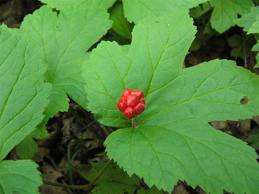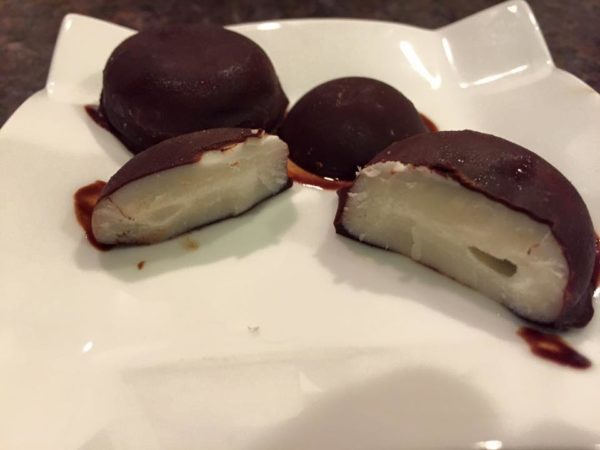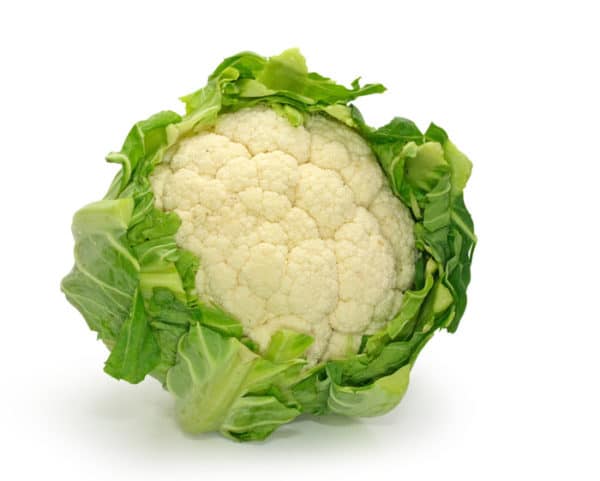
Research establishes a clear link for Insulin Resistance Reversing effects of Berberine
Goldenseal has long been used by herbalists and holistic practitioners as an anti infective and immune stimulating herb. The most active constituent, berberine, also found in Oregon Grape root, Barberry and Chinese Goldenthread (coptis), is a strong and bitter tasting alkaloid, yellow in color, and chemically classified as an isoquinoline alkaloid. Berberine has been extensively studied and is commonly used for:
- fighting against bacteria, fungi, protozoa, viruses,helminthes, Chlamydia, cholera and E coli
- decreasing inflammation
- stimulating bile secretion and bilirubin discharge
- inhibiting intestinal ion secretion and smooth muscle contraction
More recently berberine has been found to be useful for:
- metabolic syndrome, insulin resistance and type 2 diabetes
- inflammation
- various forms of cancer
It’s been found that berberine delivers anti-inflammatory properties by COX-2 inhibition via a constituent called Kaempferol. Berberine inhibits inflammatory COX-2 activity without inhibiting the beneficial COX-1 enzyme. Berberines has an impact on the production of cyclooxygenase, a highly inflammatory prostaglandin, which is thought to be why it can be so effective at halting the growth of a variety of cancers.
Berberine has been shown to lower elevated blood glucose as effectively as metformin, a drug commonly prescribed to type 2 diabetic patients.
The mechanisms of action include inhibition of aldose reductase, inducing glycolysis, preventing insulin resistance through increasing insulin receptor expression, increasing glucose uptake in insulin-resistant cells and activating an enzyme called AMPK (adenosine monophosphate-activated protein kinase) in a manner similar to how exercise stimulates increased strength and weight loss.
The body secretes AMPK to ensure our survival in times of crisis. This is the same enzyme that gets triggered with severe calorie restriction (which has been shown to prolong life in animals, but is practically sustainable by very few).
AMPK is triggered when we are producing less ATP (energy) in our cells. It stimulates cells to take in more blood sugar and decreases the liver’s production of glucose, thus improving insulin sensitivity. Low energy on both a cellular and whole body level switches metabolism from ATP-consuming to ATP-producing pathways. Metabolic syndrome is thought to occur when AMPK-regulated pathways are turned off. The hormones leptin and adiponectin activate AMPK.
High glucose and glycogen levels inhibit AMPK. That makes sense since there is “apparently” an abundance of energy around. Exercise and caloric restriction activate AMPK, which explains why they are so helpful in insulin resistance.
Berberine increases glucose uptake by muscle fibers independent of insulin levels. It also activates AMPK, which increases glycolysis and decreases gluconeogenesis, thus leading to decreased insulin resistance.
In January 2012, the European Journal of Endocrinology published results of a clinical trial that found berberine compared favorably with metformin for polycystic ovary syndrome (PCOS).
An added benefit for those with metabolic syndrome (insulin resistance coupled with blood lipid changes and cardiovascular complications) is that berberine improves lipid profiles and helps offset the negative consequences of metabolic syndrome.
Effective dosages for berberine in cases of insulin resistance and type 2 diabetes vary from client to client. 400-500mg at once, twice or three times a day appear to be effective. Start with once a day and work your way up.
References:
- http://www.naturalmedicinejournal.com/article_content.asp?article=384
- http://www.ncbi.nlm.nih.gov/pmc/articles/PMC2410097/
- http://jcem.endojournals.org/content/93/7/2559.abstract
- Zhang Y, Li X, Zou D et al. (July 2008). “Treatment of type 2 diabetes and dyslipidemia with the natural plant alkaloid berberine”. The Journal of Clinical Endocrinology and Metabolism 93 (7): 2559-65. doi:10.1210/jc.2007-2404. PMID 18397984.
- Yin J, Xing H, Ye J (May 2008). “Efficacy of berberine in patients with type 2 diabetes mellitus”. Metabolism: Clinical and Experimental 57 (5): 712-7. doi:10.1016/j.metabol.2008.01.013. PMC 2410097. PMID 18442638.
- Liu LZ, Cheung SC, Lan LL et al. (December 2009). “Berberine Modulates Insulin Signaling Transduction in Insulin-resistant Cells”. Molecular and Cellular Endocrinology 317 (1-2): 148-53. doi:10.1016/j.mce.2009.12.027. PMID 20036710.
- Wei W, Zhao H, Wang A, et al. A clinical study on the short-term effect of berberine in comparison to metformin on the metabolic characteristics of women with polycystic ovary syndrome. Eur J Endocrinol. 2012;166(1):99-105.
- Kong WJ, Zhang H, Song DQ, et al. Berberine reduces insulin resistance through protein kinase C-dependent up-regulation of insulin receptor expression. Metabolism. 2009;58(1):109-119.
- Zhang H, Wei J, Xue R, et al. Berberine lowers blood glucose in type 2 diabetes mellitus patients through increasing insulin receptor expression. Metabolism. 2010;59(2):285-292.
We cover many more herbs and foods important for balancing blood sugar in Insulin Resistance Solutions Practitioner Training (IRSPT).
With love and appreciation,
Dr. Ritamarie Loscalzo
What additional questions do you have about the use of goldenseal in reversing insulin resistance? Comment below!
Share this:

Are you feeling stuck?
Do you feel as if something is missing from your practice that's keeping you from delivering breakthrough outcomes for your clients?.
Recent Posts
Our Programs
Nutritional Endocrinology Practitioner Training (NEPT)
The Mastery and Certification tier is our flagship program and provides everything you need to feel confident as a practitioner who knows how to get results that lead to healthy and happy clients.
Functional Assessment Mastery
Explore the relationships between the most important hormones and their relationship with nutrition.
Functional Nutrition Mastery
Learn how to support your clients to eat and supplement in a way that reduces and eliminates chronic symptoms.
Medical Disclaimer: The information on this website is not intended to replace a one-on-one relationship with a qualified health care professional and is not intended as medical advice. It is intended as a sharing of knowledge and information from the research and experience of Dr. Ritamarie Loscalzo, drritamarie.com, and the experts who have contributed. We encourage you to make your own health care decisions based upon your research and in partnership with a qualified health care professional.
Disclosure: Sometimes (but not always), when I share resources in my programs, newsletter, and on my website, I'm using an affiliate link, which means I do make money if you buy. My credibility is extremely important to me; therefore, I only endorse the products, services, and people I believe in. DrRitamarie.com is independently owned and the opinions expressed here are my own.
Click here to see our Privacy Policy.











